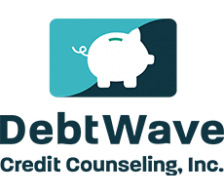When you reach a point where your debt becomes overwhelming and entirely too much to handle on your own, a simple internet search for debt settlement can uncover a variety of options geared towards alleviating the pressure of said debt and getting you back to a solid financial ground.
But, while many of these solutions promise painless debt relief, it’s important to know what really happens behind the scenes and the price you could pay now and into the future.
Debt settlement is one such solution that attempts to lessen the amount you owe on a debt by negotiating with the creditor.
In this case, a debt settlement company completes the negotiations on your behalf, and you send them a monthly payment based on the agreed-upon debt settlement price and the fee for their services.
If this is one route you’re considering taking, make sure you’re fully aware of all the pros and cons first.
Debt Settlement Pros & Cons (Guide to Debt Settlement)
Debt Settlement Pros
-
You could pay significantly less for your debt overall
One of the key benefits of debt settlement is the potential of paying significantly less on your debt than you would otherwise. This could be as much as 50 percent off the original cost – something that could help substantially when it comes to getting back on your feet.
-
It can streamline the debt repayment process
Organization is key when it comes to paying off outstanding debt.
When you’re overwhelmed and don’t have a plan, organizing your finances can be hard to do on your own. Having a third party come in, negotiate your debts, and put everything into one monthly payment can help you get back on a steady repayment plan.
-
It could be better than the bankruptcy alternative
If you’re at a place where you simply can’t afford to repay the debt that you owe, debt settlement could be a better alternative than filing for bankruptcy, which could lead to the liquidation of your assets.
Debt Settlement Cons
-
Your credit will suffer
Collections agencies aren’t likely to be on board with negotiating lower payments if your payments are currently on time. Therefore, you will need to stop paying on accounts for 3-4 months in order to push them into a delinquent standing and open up the possibility of negotiating.
While this is the recommended step by the debt settlement company, it is one that will lead to new late payment marks on your credit report.
In addition, paying off the settled upon amount doesn’t put you in the free in clear.
On your credit report, this will appear as a settlement payment, not something that has been paid in full. This negative mark will stay put for seven years.
-
Debt settlement isn’t free
Since you will be working with a debt settlement company and not directly with your creditors, you must pay whatever service fee is required. So while your actual debt payments could be lower, you will have to factor in the overall cost for the debt settlement itself.
Many companies charge a percentage of the total cost of debt you carry. For example, one company interviewed in USNews reported charging 14 percent of all unsecured debt plus a $29 application fee. For someone bringing over a significant amount of debt, this cost could be substantial.
-
You could be taxed on the forgiven debt amount
When a creditor agrees to a settlement amount lower than the original debt owed, they report this to the IRS as lost income.
Unfortunately, the IRS is still interested in collecting its money, so it can then turn to you and count this amount as gained income – something you will then have to pay income taxes on.
-
It’s not a guarantee
Debt settlement success rests on the premise that your creditors will be open to negotiating a lower rate.
There is always the chance that, after you’ve damaged your credit from skipping payments for months at a time, they still won’t budge on the total amount due.
In this case, you could be looking at an even worse situation than when you first started.
The bottom line of Debt Settlement?
If debt settlement is something you are considering, make sure to do all your research and weigh the cost benefits instead of simply being persuaded by the thought of being debt-free.
After all, this is just one path towards debt freedom and there is always a good chance that it’s not the best path for your particular situation.
Takeaways:
- Try to handle the debt on your own.
- Consider reviewing your debt management options with a certified credit counselor.
- If credit counseling won’t help you enough, consider debt settlement.
- Bankruptcy should always be the last option.
Not sure where to start? Contact us to schedule your personalized review and we’ll explain all of your options. Para Español oprima numero cinco.


